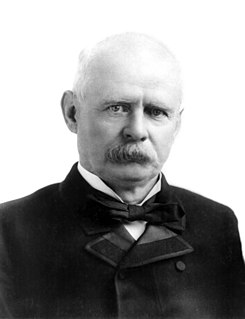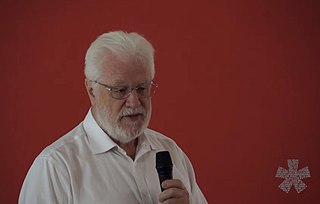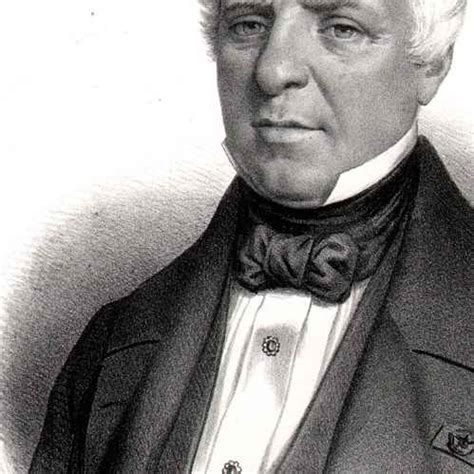A Quote by Alan Perlis
Every program has (at least) two purposes: the one for which it was written and another for which it wasn't.
Related Quotes
The church exists primarily for two closely correlated purposes: to worship God and to work for his kingdom in the world ... The church also exists for a third purpose, which serves the other two: to encourage one another, to build one another up in faith, to pray with and for one another, to learn from one another and teach one another, and to set one another examples to follow, challenges to take up, and urgent tasks to perform. This is all part of what is known loosely as fellowship.
There is another temptation which we must especially guard against: the simplistic reductionism which sees only good or evil; or, if you will, the righteous and sinners. The contemporary world, with its open wounds which affect so many of our brothers and sisters, demands that we confront every form of polarization which would divide it into these two camps.
When you're going to school primarily for career purposes, it's more important to focus on which program is best for you. In addition, your success at college depends far more on what you do at the college than at which college you do it: Choosing the right program, then the right advisor, the right courses, the right term papers, the right co-curricular activities, the right fieldwork, the right internships. You can make those choices at any college.
It is extremely important that adequate provision be made for reasonable levels of income to them, for the care of the children which they must leave at home or in school, and for protection of the family unit. One of the prime objectives of the Commission on the Status of Women, which I appointed 18 months ago, is to develop a program to accomplish these purposes.
In every part of the universe we observe means adjusted with the nicest artifice to the ends which they are intended to produce; and in the mechanism of a plant, or animal body, admire how every thing is contrived for advancing the two great purposes of nature, the support of the individual, and the propagation of the species.
In The United States, the only real change I know has been Instant Runoff, which is usually applied to municipal elections. I see no real improvement. There's another aspect which comes out of the two-party system, which the primary, a funny kind of two-stage election. And people certainly have complained.
That which is common to the greatest number has the least care bestowed upon it. Every one thinks chiefly of his own, hardly at all of the common interest; and only when he is himself concerned as an individual. For besides other considerations, everybody is more inclined to neglect the duty which he expects another to fulfill.
the leader releases energy, unites energies, and all with the object not only of carrying out a purpose, but of creating further and larger purposes. And I do not mean here by larger purposes mergers or more branches; I speak of larger in the qualitative rather than the quantitative sense. I mean purposes which will include more of those fundamental values for which most of us agree we are really living.



































